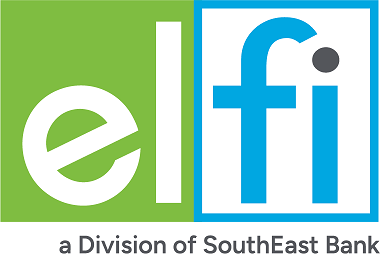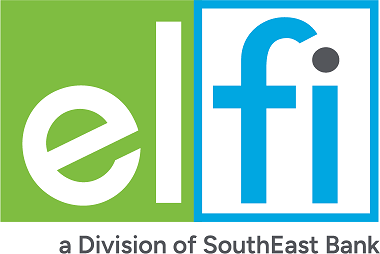College application deadlines can differ between schools, but they generally occur during the fall of your senior year, from September to December. Even though a specific due date is set, it's wise not to procrastinate. Applying early is always a good strategy if possible!
While the application periods can vary, most open by August 1st and typically remain open until December, sometimes extending into early January. Regular admissions decisions are usually announced around March or April for the upcoming academic year.
- College application deadlines vary by school and can be as early as October of the student's senior year in high school.
- It is important for students to research individual college application requirements and deadlines to ensure their applications are timely.
- The Common Application, an online system used by many colleges and universities, allows students to apply to multiple schools with a single application.
- Early action or rolling admissions options are available at some schools which allow applicants to hear back from colleges sooner than typical regular decision timelines.
Types of College Admissions Deadlines
There are generally three ways to apply to college: regular decision, early decision, and early action.
1. Regular Decision: You submit your application and wait for the decision.
2. Early Decision: If accepted by early decision, you must attend that school.
3. Early Action: You request a decision earlier than normal, but you are not required to accept the offer.
Some schools use a rolling admissions method. They have a deadline to submit the application but evaluate and make decisions throughout the admissions period until all available spots are filled. This selection process is different from traditional admissions, where a school waits and accepts all applications submitted by the deadline, then reviews them all at the same time. In the case of regular decision, applying early is not an advantage. However, early applications are still recommended for early decision or early action admissions.
So what should you think about with each type of application:
Regular Decision Admissions
- Submit your application by the deadline (or as early as possible if you are applying to a school with rolling admissions).
Early Decision Admissions
- Submit your application ASAP since early decision spots could go fast and as the name implies decisions are made early (generally around November).
- Keep in mind that if you are accepted, you are required to attend this school. So only apply to only one school with early decision.
- If you are accepted, it’s best to notify the other schools you applied to, to let them know you have accepted an offer.
Early Action Admissions
- Submit your application early to ensure you are within the early action consideration set before early action decision are made (typically December or January).
- You are not required to attend if you are accepted. However, if you choose to accept an early action acceptance, you should notify the other schools to let them know you have accepted another school.
It is crucial to inform schools to which you have applied that you have accepted an offer from another institution. This is particularly important because some students may not receive an acceptance or rejection but may instead find themselves placed on a waitlist. The waitlist serves as a temporary state where students remain until a spot becomes available. If you find yourself on a waitlist, you will need to wait for other students to decline their acceptance. Depending on your position on the list, a spot may or may not become available for you.
Preparing your College Application
To ensure you submit all your college applications on time, preparation is key. High school seniors juggle numerous responsibilities and considerations in their final year, so tackling tasks in advance can alleviate stress.
In junior year, prioritize taking the SAT or ACT tests and aim for satisfactory scores as they influence admission decisions for test-score-reliant schools. Gather essential documents like high school transcripts, recommendation letters, and achievement records to streamline the application process.
Using the Common App to Apply to College
For students that intend to apply to many schools (say more than 10), using the Common App to apply can be extremely useful and time saving. This is a free service that collects all your information in one central location and allows you to use it for applying to multiple schools. While the service is easy to use and allows for applications to potentially be sent to lots of schools, application fees still apply and can add up, so be intentional where you send your applications to.
Certain income-eligible students may qualify for a college application fee waiver at some school. For example, if you were able to take the SAT for free because you qualified for a fee waiver, then there may be certain schools that will waive their application fees as well. Before you apply to a school, make sure to do some research on fee waivers if you think you could qualify. Those applications fees can add up quickly, and why not save the money if you can!
Writing your Essays
Essays are not only a necessary part of the college application process, but they might also just be the piece of your submission package that gets you the acceptance letter. Having your essays ready and optimized is a very important. Know that you will likely have to write a primary essay or personal statement, basically an essay about you. There may also be supplemental essays. You can sometimes look up the essay topics on the school’s website to help you know what you will have to write about.
Filling out the FAFSA® (Free Application for Federal Student Aid)
The FAFSA is not required as part of the college application process but it’s best to fill out this free form at the same time you are applying for schools. The information you provide on the FAFSA will be used to determine not only your federal student aid eligibility, but can also be used by your state and school to determine your financial aid award. Schools can use this form to help determine if they will want to offer any need-based aid, or may require you to complete the FAFSA to award you merit-based aid—you want to read your school’s financial aid policies! While completing your research, you may find out that your school requires additional financial aid applications, like the CSS Profile™.
When are Admissions Decisions are Made?
Depending on the type of application you submitted (regular decision deadline, early decision deadline or early action deadline) will determine when decisions are made. Expect regular admissions application decisions in spring – March, April or early May. Early decision applications should come around November and early action December into January. With applications typically beginning in August, we recommend you apply and complete your college applications as early as possible to ensure you have the greatest chances for acceptance.

























